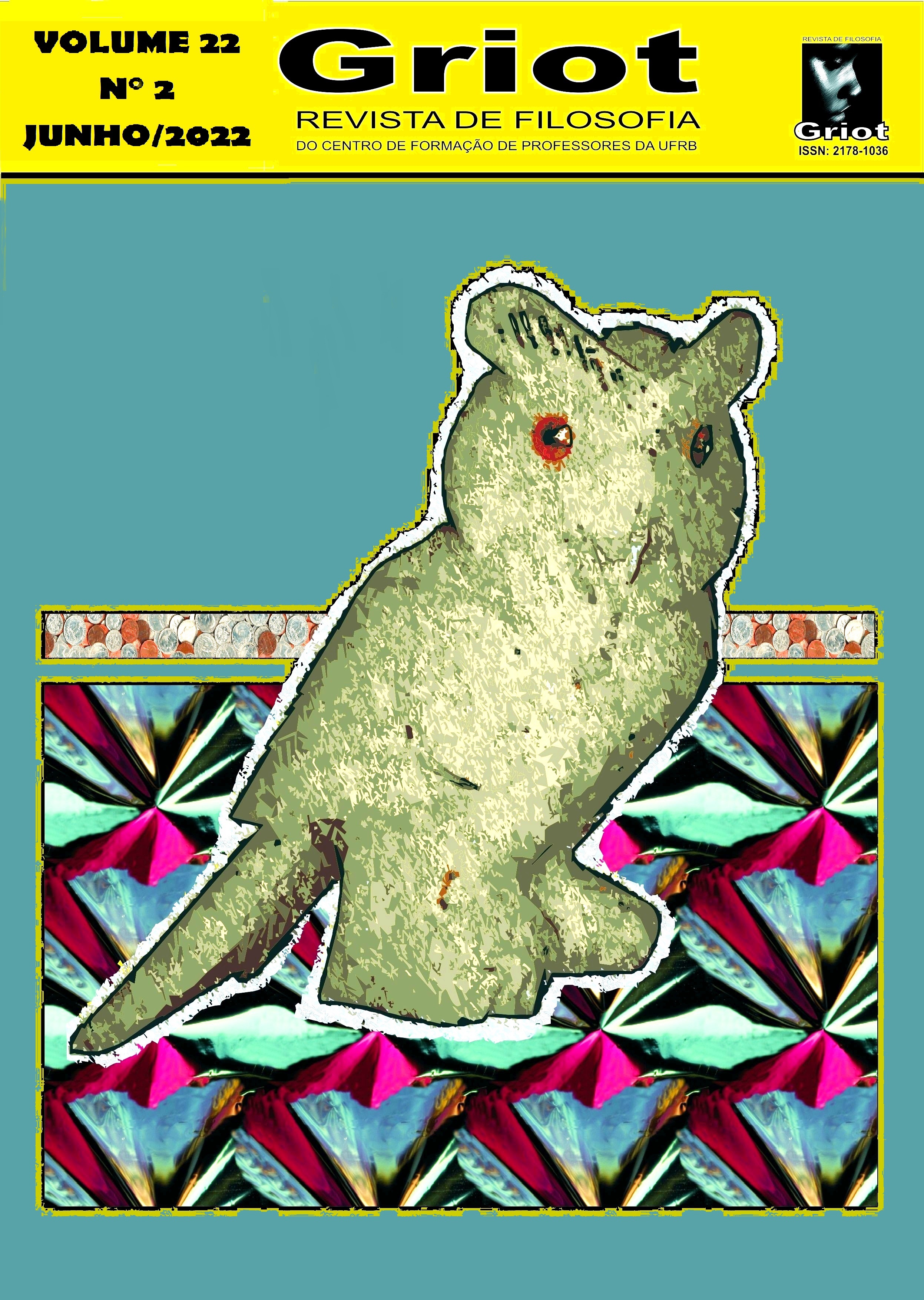A starting point about measurements: a schematic and epistemologically useful understanding
DOI:
https://doi.org/10.31977/grirfi.v22i2.2836Keywords:
Measurement; Philosophy of Measurement; Epistemology of Measurement.Abstract
Theorizing about “what is x?” is the primary task of any study that seeks a “philosophy about x”. In the case of the philosophy of measurement this problem is multifaceted, as it involves notions whose restrictions are formulated because of metaphysical assumptions and epistemic consequences. Concerning the understand of what it is to measure, there are problems derived from the relationship between measurement and knowledge, especially scientific knowledge. This relationship raises broad epistemological questions that can be broken down into more specific epistemic problems. Would there be, then, a way to understand and characterize measurements that would make it possible to identify and clarify a set of these problems? This article proposes a framework for the act of measuring that is fruitful in the sense of giving a useful starting point in this field.
Downloads
References
BRIDGMAN, Percy. The Logic of Modern Physics. New York: Macmillan, 1927.
CARNAP, R. Philosophical Foundations of Physics: An Introduction to the Philosophy of Science. New York: Basic Books, Inc.,1966.
CARTWRIGHT, Nancy; CHANG, Hasok. Measurement. In: CURD, M.; PSILLOS, S. (org.). The Routledge Companion to Philosophy of Science. 2nd ed. New York: Routledge, 2013, p. 411 – 419.
CARTWRIGHT, Nancy; RUNHARDT, Rosa. Measurement. In: CARTWRIGHT, N.; MONTUSCHI, E. (org.). Philosophy of Social Science: a new introduction. Oxford: Oxford University Press, 2014, p. 265-287.
CHANG, Hasok. Inventing temperature. Oxford: Oxford University Press, 2004.
CHANG, Hasok. Pragmatic realism. Revista de Humanidades de Valparaíso, n. 8, p. 107-122, 2016.
FINKELSTEIN, Ludwik. Widely, Strongly and Weakly Defined Measurement. Measurement, v. 34, p. 39–48, 2003.
FINKELSTEIN, Ludwik. Widely-defined Measurement – An analysis of challenges. Measurement, v. 42, p. 1270–1277, p. 2009.
HELMHOLTZ, Hermann von. Numbering and Measuring From an Epistemological Viewpoint. In: COHEN, R. ELKANA, Y. Hermann von Helmholtz epistemological writings: the Paul Hertz/Moritz Schlick Centenary Edition of 1921. Trans. Malcolm Lowe. Boston studies in the philosophy of science, v. 37. Dordrecht: D. Reidel Publishing Company, 1977, p. 72 – 102.
INSTITUTO NACIONAL DE METROLOGIA, QUALIDADE E TECNOLOGIA. JCGM: 200 – 2012. Vocabulário Internacional de Metrologia: Conceitos fundamentais e gerais e termos associados (VIM 3, 2012). 3 ed. Duque de Caxias: INMETRO, 2012. Disponível em: http://www.inmetro.gov.br/inovacao/publicacoes/vim_2012.pdf. Acesso em: 15 mar. 2020.
KUHN, Thomas. The Function of Measurement in Modern Physical Sciences. Isis, v. 52, n. 2, 1961.
MACH, Ernst. Principles of the Theory of Heat. T. J. McCormack (trans.). Dordrecht: D. Reidel, 1986.
MARI, Luca. A Quest for the Definition of Measurement. Measurement, v. 46, p. 2889-2895. 2013.
MARI, Luca. Epistemology of Measurement. Measurement, v. 34, p. 13 - 30, 2003.
PADOVANI, Flavia. Measurement, Coordination, and The Relativized a Priori. Studies in History and Philosophy of Modern Physics, v. 52, p. 123–128, 2015.
PORTER, Theodore. Objectivity as Standardization: The Rhetoric of Impersonality in Measurement, Statistics, and Cost-Benefit Analysis. In: MEGILL, A. (org.). Rethinking Objectivity. London: Duke University Press, 1994, p. 197-238.
QUINN, Terry. From Artefacts to Atoms – A new SI for 2018 to be Based on Fundamental Constants. Studies in History and Philosophy of Science, v. 65-66, p. 8-20, 2017.
STEVENS, Stanley. On the Theory of Scales of Measurement. Science, v. 103, p. 677–680, 194
SUPPES, Patrick; ZINNES, Joseph. Basic Measurement Theory. Psychology Series - Technical Report No. 45, 1962
TAL, Eran. How Accurate Is the Standard Second? Philosophy of Science, v. 78, n. 5, p. 1082-1096, 2011.
TAL, Eran. Making Time: A Study in the Epistemology of Measurement. The British Journal for the Philosophy of Science, v. 67, 2016, p. 297–335, 2016.
TAL, Eran. Measurement in Science. In: ZALTA, E. (ed.). The Stanford Encyclopedia of Philosophy, 2020. Disponível em: https://plato.stanford.edu/entries/measurement-science. Acesso em: 30 nov. 2020.
Van BRAKEL, J. Norms and facts in measurement. Measurement, v. 2, p. 45-51, 1984.
Van FRAASSEN, Bas. Laws and Symmetry. Oxford: Oxford University Press, 1989.
Van FRAASSEN, Bas. Scientific Representation: Paradoxes of Perspective. Oxford: Oxford University Press, 2008.
Downloads
Published
How to Cite
Issue
Section
License
Copyright (c) 2022 Felix Pinheiro

This work is licensed under a Creative Commons Attribution 4.0 International License.
The authors who publish in Griot: Revista de Filosofia maintain the copyright and grant the magazine the right of first publication, with the work simultaneously licensed under the Creative Commons Attribution 4.0 International License, allowing sharing and adaptation, even for commercial purposes, with due recognition of authorship and initial publication in this journal. Read more...









































































